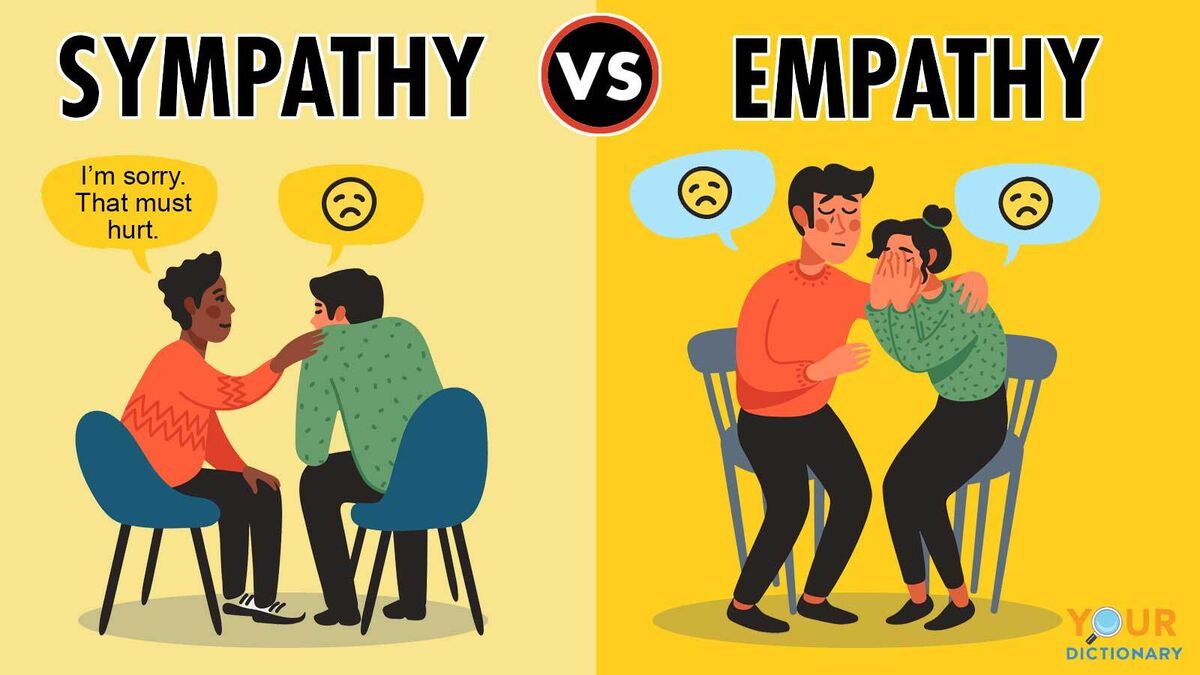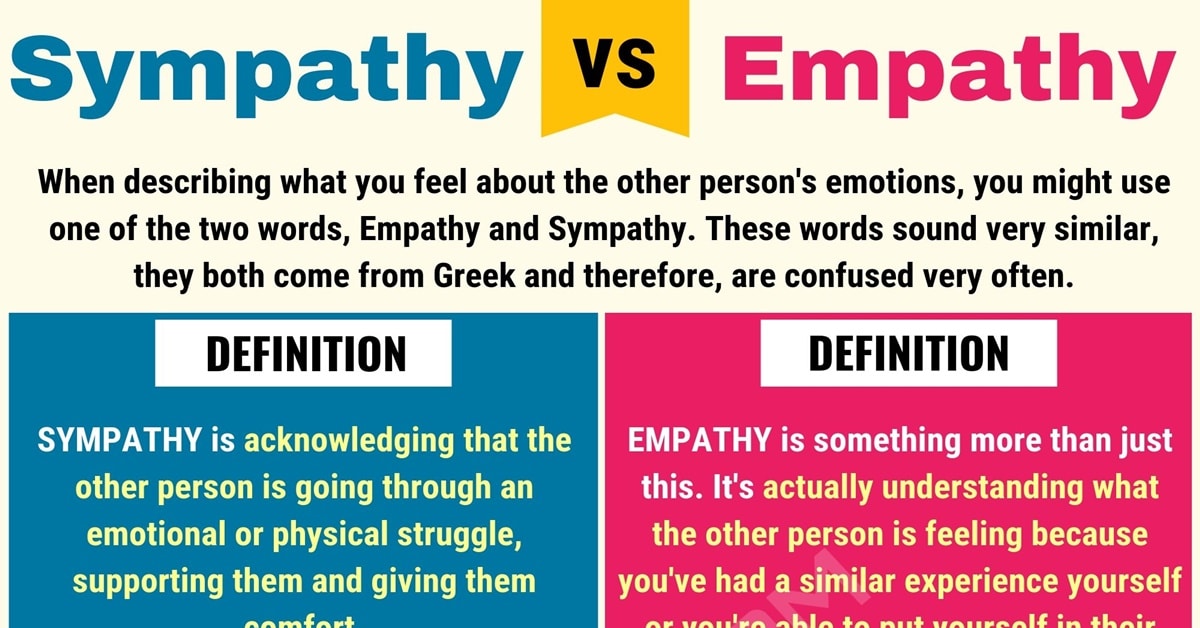In the realm of human emotion and connection, the terms empathy and sympathy are often used interchangeably, but they carry distinct meanings that impact our interactions with others. Understanding the difference between empathy and sympathy can not only enhance our relationships but also cultivate a deeper understanding of the human experience. While both emotions arise in response to the suffering or challenges of others, their manifestations and implications can vary significantly.
The essence of empathy lies in the ability to recognize and share the feelings of another person, creating a bridge of emotional understanding. On the other hand, sympathy is rooted in a sense of care and concern for someone else's situation, but it doesn't necessarily involve sharing their emotional state. This fundamental difference plays a crucial role in how we respond to others in times of need, whether through support, comfort, or simply being present.
As we delve deeper into the topic, we will explore the nuances of empathy and sympathy, examining their definitions, characteristics, and the impact they have on our relationships. By grasping the difference between empathy and sympathy, we can foster more meaningful connections and respond to others with greater awareness and compassion.
What is Empathy?
Empathy is the ability to put oneself in another person's shoes, to feel what they feel, and to understand their emotional experience from their perspective. It involves an emotional resonance that allows us to connect on a deeper level, fostering compassion and support. Empathy can be categorized into two main types:
- Affective Empathy: The capacity to respond emotionally to others' feelings, often resulting in shared emotional experiences.
- Cognitive Empathy: The ability to understand another person's perspective or feelings without necessarily sharing in their emotional experience.
What is Sympathy?
Sympathy, on the other hand, refers to feelings of pity or sorrow for someone else's misfortune. It involves a degree of emotional distance, where one acknowledges the struggles of another but does not share in their emotional experience. Sympathy can be manifested through supportive words or actions, but it does not necessarily require an emotional connection. This distinction is vital when offering support to those in distress.
How Do Empathy and Sympathy Differ?
The difference between empathy and sympathy can be summarized in several key points:
- Emotional Involvement: Empathy involves shared emotional experiences, while sympathy is more about acknowledging another's feelings without fully engaging.
- Connection: Empathy fosters a deeper connection, while sympathy can create a sense of distance.
- Response to Suffering: Empathy leads to active support and understanding, whereas sympathy may result in more passive feelings of concern.
- Long-term Impact: Empathy can promote healing and resilience, while sympathy may provide temporary comfort.
Why is Understanding the Difference Between Empathy and Sympathy Important?
Grasping the difference between empathy and sympathy is crucial in various aspects of life, including personal relationships, professional settings, and mental health. Here are several reasons why this understanding matters:
- Better Support: Knowing when to empathize or sympathize can enable us to provide more effective support to those in need.
- Improved Communication: Understanding these concepts enhances our ability to communicate our feelings and intentions clearly.
- Emotional Intelligence: Developing empathy can foster emotional intelligence, which is essential for personal and professional growth.
- Conflict Resolution: Empathy can play a crucial role in resolving conflicts by promoting understanding and connection.
When Should You Practice Empathy Instead of Sympathy?
While both empathy and sympathy are important, there are specific situations where practicing empathy is more beneficial:
- In Personal Relationships: When a loved one is going through a tough time, empathy allows you to connect and provide support in a way that is more meaningful.
- In Professional Settings: Leaders and colleagues who practice empathy can foster a positive work environment, encouraging collaboration and trust.
- In Mental Health Care: Mental health professionals often rely on empathy to build rapport and provide effective care to their clients.
Can Sympathy Be Beneficial?
While empathy often takes the spotlight, sympathy can also play a valuable role in human interaction. It can provide comfort and reassurance to those who may not be ready to open up or engage in deeper emotional exchanges. Here are some contexts where sympathy can be beneficial:
- When Someone Requires Space: Offering sympathy can create a supportive environment without overwhelming the individual.
- In Casual Interactions: Sympathy can be appropriate in situations where a deeper emotional commitment is not feasible.
- As a Starting Point: Sympathy can serve as an entry point to deeper empathetic connections over time.
How Can You Cultivate Empathy in Your Life?
Cultivating empathy is a skill that can be developed through practice and intention. Here are some strategies to enhance your empathetic abilities:
- Active Listening: Engage fully in conversations, focusing on understanding the speaker's feelings and experiences.
- Ask Open-Ended Questions: Encourage others to share their thoughts and feelings without judgment.
- Practice Mindfulness: Being present in the moment can help you connect more deeply with others' emotions.
- Read Widely: Literature and stories can provide insights into diverse human experiences, enhancing your understanding of others.
Conclusion: Embracing the Spectrum of Human Emotion
In conclusion, the difference between empathy and sympathy is a nuanced yet essential aspect of human interaction. By understanding and embracing these concepts, we can enhance our relationships, foster connection, and build a more compassionate society. Whether we choose to empathize or sympathize, the key is to approach each situation with intention and awareness, allowing us to support others in the most meaningful way possible.
Article Recommendations
- Soledad Obrien Net Worth And Career Highlights
- Tulsi Gabbards Husband Eduardo Tamayo Details Facts
- Cindy Costner The Life And Career Of An Entertainment Icon


